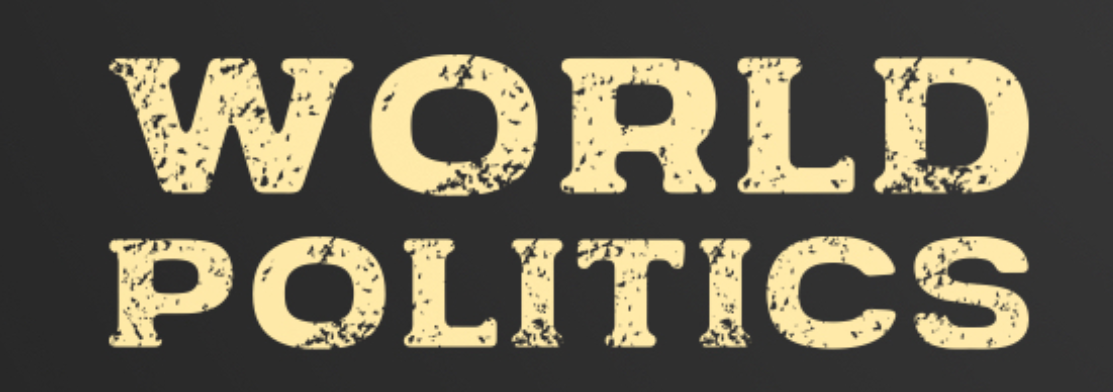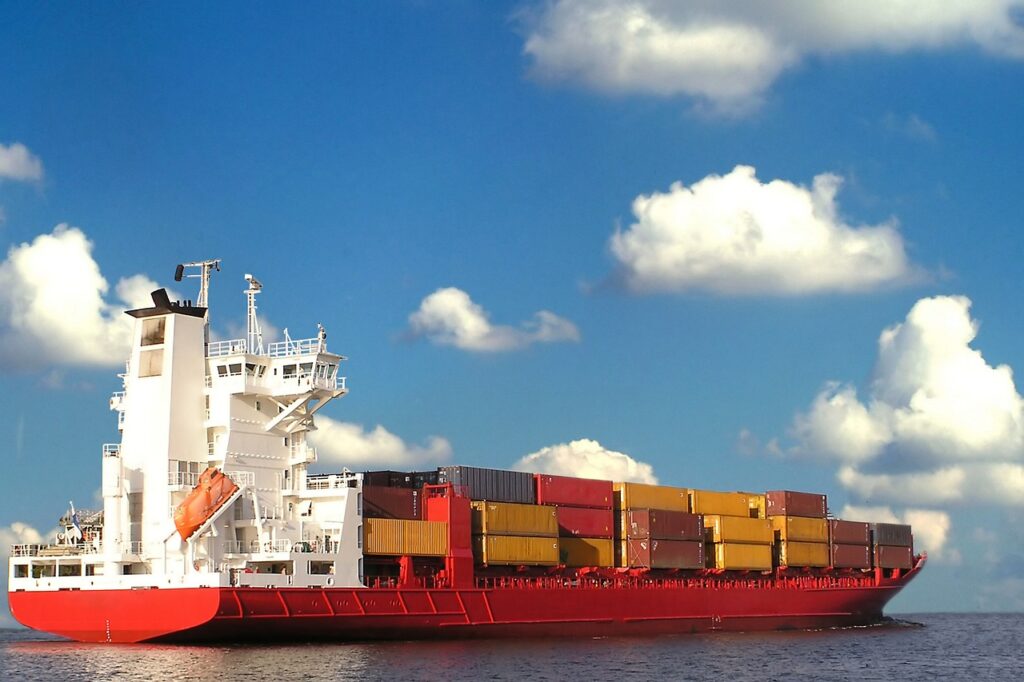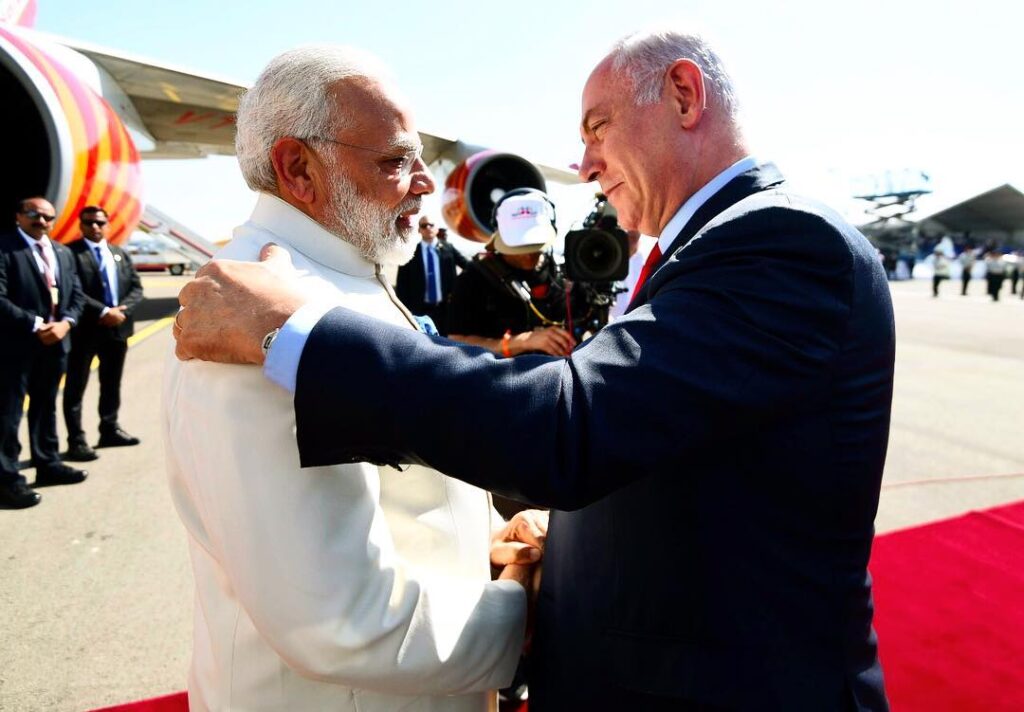In order to know about and understand India-Israel relations there are a lot of aspects to look into from history, trade, bilateral cooperation and many more.
Historical Background
The trade relations of both countries can be traced long back to first millennium BCE and also earlier to the time between the Indus Valley Civilization and the Babylonian culture of Middle East. The mention of Indian merchants visiting Baveru (known as Babylonia) and selling peacocks for public display can be seen in Buddhist story also. The same kind of earlier accounts describe monkeys exhibited to the public in Baveru. Since then, the trade connections between Indian subcontinent and Palestine-Mediterranean Jewish communities continued.
Further the Excavation at Tel Megiddo shows the evidences of Indo-Mediterranean trade relations from mid-2000 BCE between Indian subcontinent and southern Levant. These trade relations is proven with the presence of Banana, Turmeric and Sesame, all originating in Indian subcontinent. This is also evident from geographical analysis of Israel that in Old Testament we find mentioning of India by their authors. In those accounts we find trade of animals such as monkeys and peacocks.
According to the famous Israeli professor of Hebrew Chaim Menachem Rabin, the connections between ancient Israel and the Indian subcontinent were recorded during the reign of King Solomon in 10th century BCE. In the Periplus of the Erythraean Sea and the accounts surrounding Queen of Sheba in the Hebrew Bible, the ancient trade and cultural relations of India and the Levant is documented. Jews of Kochi, Kerala, in India, trace their origin back to the time of King Solomon. They are called Cochin Jews. Pardesi Jews also migrated to Kochi Kerala, when they were expelled in 15th and 16th centuries from Spain.
There had a minor role played by Judea in ancient trade between the Roman Empire and Indian subcontinent in the reign of Roman rule in Judea. It is also said that there were costly ornaments in the Temple in Jerusalem which were imported from India via Alexandria. sources
India has 3 Phases of recognition to Israel
India’s position on the establishment of Israel was influenced by various factors, including religious partition during India’s own independence, relationships with other nations, and Mahatma Gandhi’s belief in the Jews’ case but opposition to Israel’s creation based on religious grounds. Taking into account the historical, present and future factors, the recognition of Israel process can be divided into three phases.
Non recognition (1948-1950)
India voted against the Partition of Palestine plan of 1947. India also voted against Israeli’s admission to the UN in 1949. On 13 June, 1947, Albert Einstein wrote a letter to JL Nehru to persuade India to support the formation of a Jewish State but Nehru, however, did refuse Einstein’s request. He expressed his incompetence stating that national leaders “have to unfortunately pursue policies that are essentially selfish.
Hindu Nationalist supported or sympathized with the creation of Israeli State. Veer Savarkar, Hindu Mahasabha leader whole heartedly supported the creation of Jewish State. He also condemned polarized India’s vote at the UN against Israel. Madhav Sadashiv Gollwalkar, the RSS leader also admired Jewish Nationalism and said that the original occupant of Palestine are the Jewish people. Following above circumstances, the India-Israel relations during this period could not establish well.
Informal recognition (1950-1992)
India officially recognized State of Israel on 17 September, 1950 and was also permitted to open its consulate in Bombay in 1953. On recognition of the State of Israel by India, the then India Prime Minister, Jawaharlal Nehru stated “We would have recognized Israel long ago, because Israel is a fact. We refrained because of our desire not to offend the sentiments of our friends in the Arab countries”. From 1950 till early 1990s, the India-Israel relations were remained formal.
Reasons behind not formalizing India-Israel relations- India’s opposition to officially diplomatic ties with Israel was determined by politics of both domestic and international considerations. Firstly domestic Indian leaders of that time were feared of losing Muslim vote if the ties with Israel were normalized and secondly India did not want it’s citizen to suffer who were working in gulf nations and were helping India to maintain its foreign exchange reserve.
Formal recognition (1992- till now)
Finally India-Israel relations were formally established when India opened an embassy in Tel Aviv in January 1992. Since then the ties between both the nations have touched new heights in all the field i.e. trade, commerce, defense, agriculture etc. and still by the passing of every year the relations between both of the nation’s flourishing.
Bilateral Trade
India-Israel relations have a backing of growing strong bilateral trade between India-Israel. It started from $200 million in 1992 and reached up to $5.2 Billion in 2014 which further grew up to $10.77 Billion in 2022-23.
You may also know about India-Iran relations.
Major commodities which India export to Israel
- Gems, precious metals and coins
- Organic chemicals
- Electronic equipment
- Medical, technical equipment
- Plastics
- Vehicles
- Machinery
- Other textiles, worn clothing Knit or crochet clothing
- Clothing (other than knit or crochet)
Major commodities which Israel exports to India
- Gems, precious metals and coins
- Electronic equipment
- Medical, technical equipment
- Iron or steel products
- Fertilizers
- Machinery
- Organic chemicals goods
- Inorganic chemicals
- Plastics
High level visits
In 1997
The first Israeli President to visit India was Ezer Weizman in the year 1997.
In 2000
Lal Krishna Advani was the first Indian minister to visit to Israel in the year 2000. To further boost the India-Israel relations Jaswant Singh became the first Indian Foreign Minister to visit Israel in the same year.
In 2003
The first Israeli Prime Minister who visited India was Ariel Sharon and received a warm welcome by BJP led NDA government.
In 2006
In wake of taking India-Israel relations to new height, in the year 2006 several Indian Ministers like Sharad Pawar, Kapil Sibbal and Kamal Nath visited Israel. The very same year the chief minister of the state of Gujrat, Narendra Modi also went to Israel.
In 2012
Indian Foreign Minister S M Krishna visited Israel in 2012.
In 2014
In the year of 2014 newly elected Indian Prime Minister Narendra Modi met with his counterpart Israeli Prime Minister Benjamin Netanyahu in New York City on the side-line of United Nations General Assembly. Then Indian Home Minister Rajnath Singh visited Israel in November 2014. This was the first visit of its kind in which an Indian Minister visited Israel only without going to Palestine at the same time.
In 2015
In February 2015 Israeli Defense Minister Moshe Ya’alon visited India and participated in Aero India 2015. Pranab Mukherjee became the first President of India to visit to Israel in October 2015 and got an honor to address the Knesset that further helped in strengthening of India-Israel relations.
In 2016
Sushma Swaraj, India Foreign Minister visited Israel in January 2016 and met with PM Benjamin Netanyahu, President Reuven Rivlin and Indian Jewish communities in Israel. September the same year Radha Mohan Singh, Indian Minister of Agriculture visited to bolster India-Israel ties and met his Israeli counterpart Uri Ariel. Israeli President Reuven Rivlin visited India in November 2016.
In 2017
Indian Prime Minister Narendra Modi visited Israel and had great met with his counterpart Israeli Prime Minister Benjamin Netanyahu. In this met lot of MoU were signed by both the countries to help and increase its strength in India-Israel relations
In 2018
Israeli PM Benjamin Netanyahu paid a visit to India to commemorate 25 years of India-Israel relations.
In 2021
In October 2021, India’s Minister of External Affairs, S. Jaishankar visited to Israel.
Bilateral Cooperation
- Military and Strategic cooperation
- Intelligence sharing cooperation
- Science and Technology collaboration
- Space cooperation
- Agriculture cooperation
- Cultural ties and Cross-Country perceptions
- Tourism
- Interfaith relations
- Oil and Natural gas sector cooperation
Why India Loves Israel?
There are various strong reasons why does India love to boost India-Israel relations:-
- Arab countries’ neutral position during the 1962 India-China war and their support to Pakistan during the 1965 and 1971 wars whereas it was Israel who supported India with her arms and ammunitions. The very first and strong backing by India for Israel comes from that period of time.
- The very same thing and the same conditions go with the Kargil war of 1999 between India and Pakistan.
- In the year 1998 when sanctions were imposed on India by US government because of its Nuclear Programme, Israel refrained itself from criticizing India rather it provided surveillance system.
- Hindu Nationalism has always sought our government’s action to combat terrorism in India just like Israeli government’s approach to keep terrorism out of their territory and to live safe and secure life. This idea got public support when India saw a terrorist attack on Mumbai’s Taj hotel in 2008.
- Israel has also official declared that they have a strong support for India’s cause on the Kashmir issue and this issue is bilateral issue that to be resolve by both the involved parties only.
- India-Israel relations have a strong ideological alliance because they both find themselves fighting against Islamic radicalisation and terrorism that is why they often can be seen supporting each other on global and political levels.
- One another reason of India’ love and support to Israel is because It is Israel which is helping India developing new and sustainable technologies in the field of conservation of water and boosting agriculture.








